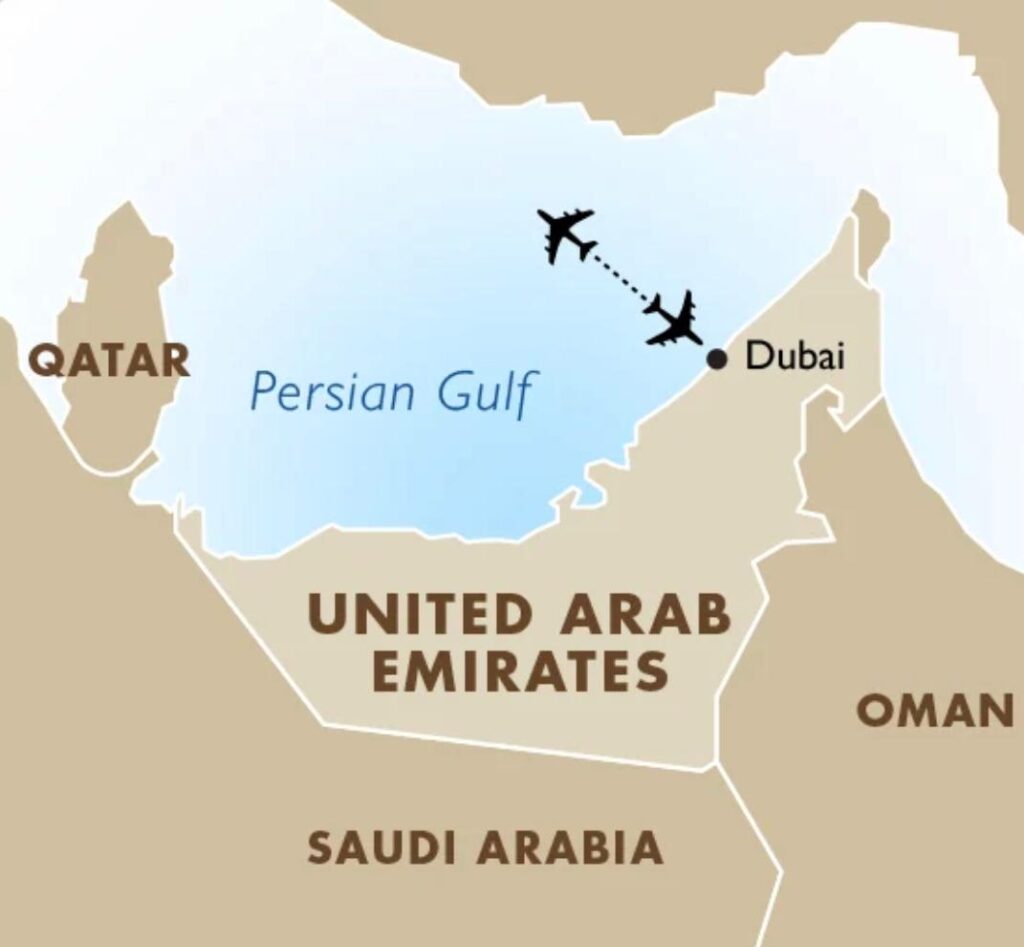
Geography differs from climate. Climate is the weather in a particular region over a long period of time, usually over a few decades (National Geographic Society [NatGeo], 2022; National Oceanic and Atmospheric Administration [NOAA], 2023). Geography on the other hand, generally refers to the topography or physical characteristics of a region (NatGeo, 2022). There are several types of geography but the focus of this section is going to be Dubai’s cultural and economic geography.
Cultural Geography
Cultural geography is the habits and behaviors of people within a region or country (Sternquist & Goldsmith, 2018, p.8). Dubai is a melting pot being one the most multicultural cities in the world (Duckett, 2019). When it comes to apparel, those living in Dubai typically dress more modestly with men wearing kandora and women donning an abaya (Chandris, 2023). Due to having high temperature weather all year round (NOAA, 2023) the garments are typically made of lighter materials in both color and fabric composition (Meemo, 2021; MOiSTREET, 2022). Interestingly, because the majority of Emiratis primarily practice the Islamic religion, it’s expected to be more covered up (Flip Flop Wanderers, 2022). As for food, the religion also dictates what emirates eat. One is unlikely to see locals eating pork or other consumables that are not prepared in a halal fashion as it goes against the majority religion. Alcohol, while not banned, Dubai requires those drinking to have a license to do so. Additionally public drinking and inebriation is punishable by law. Other illicit substances such as marijuana are entirely illegal leading to fines and possible imprisonment.
Economic Geography
Economic geography refers to the rise and distribution of wealth and industrialization (Sternquist, 2018, p.8). As a whole, the United Arab Emirates has experienced an increase in the country’s gross domestic product through means of oil and gas exports (International Trade Administration, 2022). Dubai however, contributes heavily to the country’s desire to expand their GDP. In comparison to the rest of the UAE, Dubai makes a majority of its profits from tourism and trade (Dfreight, 2022; Dubai, 2022). Dubai has been marked as one of the top shopping destinations in the world as the city has no sales tax (Kim, 2014; Maria, 2020). While Dubai has malls and other brick and mortar, the city is embracing the e-commerce space and is expected to single handedly make the city upwards of $8 billion by the year 2025 (International Trade Administration, 2022). Dubai will continue to thrive in the next coming years with wealth and industrialization.


